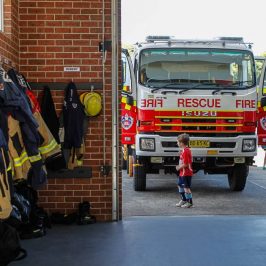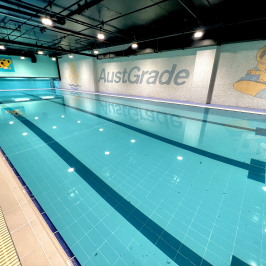by Sarah Onishe

-
Ask for help when needed
-
Share and take turns
-
Follow simple instructions
-
Take care of his/her own belongings
-
Pack and unpack his/her own bag
-
Take his/her jumper on and off as required
-
Eat and drink independently
-
Confident to go to the toilet independently
Teaching your child responsibility
Encouraging your child to take responsibility for his/her own learning can help them adjust to their new school setting. Teaching your child to tell you which days they require the following can make life much easier for you both:
-
When to wear his/her sports uniform (usually 1 to 2 days per week)
-
When to remember his/her library bag
-
When to change his/her readers
-
When to prepare for his/her news day
Communication
Successful communication with your child’s teacher and wider school community can make school life more predictable and less stressful for both you and your child. At the start of the year it’s a good idea to find out the following:
-
What day of the week and how is the school newsletter issued? The newsletter will provide all details of what’s going on in the school and upcoming dates to put in the diary.
-
If you are willing and able how can you get involved in the school community? Examples include being part of the parents and friends association, canteen duty and helping out with reading in the classroom.
-
How does your child’s teacher like to be contacted? This can vary from teacher to teacher. Some accept emails, others prefer a note from your child. It’s always a good idea to make an appointment to see your child’s teacher if you have any concerns.
Whilst seemingly a simple mistake forgetting his/her library bag or being in a different uniform from their classmates can be traumatic for a kindergarten child.
 |
 |
Reading
Learning to read is perhaps the most important skill your child will accomplish in their early years of schooling. You can help your child prior to attending school by doing the following:
-
Promote a love of reading by reading to your child books he or she enjoys daily. Children love this one-on-one time with you and the more entertaining you can make it by adding silly voices or actions the better!
-
Encourage your child to take note of print media in the environment. For example, street signs, shop names and logos, posters, bill boards, menu items, tickets, leaflets etc.
Once your child has started school:
-
Create a predictable time, space and routine for reading with your child at home.
-
Practice your child’s sight words. Sight words are words which children need to rote learn as they cannot be sounded out eg the, they, were etc. Kindergarten children are usually given 4-6 sight words per week.
Maths
Maths in the early years is mostly about consolidating your child’s understanding of numbers and how we use them in everyday life. Correct understanding of basic maths language is also a focus. For example, concepts such as more than/less than, before/after, empty/full, half/whole are very important. Discussing numbers in everyday life is the best way to help your child get a head start in maths. Here are some simple examples:
-
Show your child how to pay and receive change at the shops
-
Measure out ingredients together in the kitchen
-
Discuss time concepts in everyday situations eg what time does school start? What time do we have lunch? What time do you go to bed? etc
-
Familiarise your child with the days of the week and months of the year by noting when the activities they participate in occur.
Other handy hints and tips:
-
Playground gossip: Schools can be a breeding ground for nasty playground gossip. Avoid it at all costs! Discussing reading levels, the behaviour of other children or the often misguided reputation of teachers within the school is never helpful.
-
Canteen: What does the school canteen sell? Will you allow your child to purchase from the canteen? Is your child able to take responsibility for his/her money? Is your child buying items from the canteen without your knowledge? It’s not uncommon for kindergarten children to find lose change around the house and use it without parent permission.
-
Fundraising days: Schools often have various fundraisers throughout the year. Keep up to date with these via the newsletter and keep the change jar handy!
-
Annual concerts/festivals/swimming and sports carnivals etc: Find out when these events will occur and what they involve.
-
Mufti days: Ensure you follow the newsletter carefully as these days creep up quickly. It’s never fun to see a kindergarten child in tears on class line as everyone else is dressed in costume for Book Week.
-
Snack items: Can your child open independently small food items you pack for his/her lunch. You can teach them at home, or making a small snip in the packets can help.
-
Fruit Snack: Most schools will stop mid-morning for a quick fruit break so ensure your fruit bowl is well stocked.
-
Clearly label all items: An obvious one but you’ll be guaranteed to save yourself much time and money in the long term!














